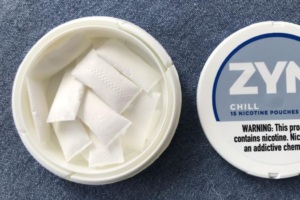Comparing the health impact of vaping nicotine and using nicotine pouches involves considering various factors. Here’s a detailed comparison:
Vaping Nicotine:
- Reduced Harm: Vaping is often considered a potentially less harmful alternative to smoking traditional cigarettes because it eliminates the combustion process that produces harmful tar and many carcinogens.
- Respiratory Benefits: Some smokers switch to vaping to reduce respiratory symptoms associated with smoking. Vaping may lead to improved lung function compared to smoking.
- Nicotine Dependency: Vaping allows users to control nicotine levels, making it possible to gradually reduce nicotine intake and potentially quit nicotine altogether.
- Limited Research: The long-term health effects of vaping are not fully understood due to its relatively recent introduction. Some concerns include potential lung injury and cardiovascular risks associated with certain vaping products and additives.
- Regulation and Quality Control: The vaping industry has faced challenges with product quality control and regulation, leading to concerns about the safety of vaping products.
Nicotine Pouches:
- Tobacco-Free: Nicotine pouches are tobacco-free, eliminating exposure to many harmful chemicals associated with tobacco fermentation and combustion.
- Reduced Oral Risks: Compared to smokeless tobacco products, nicotine pouches are less likely to cause severe oral health problems like gum disease or oral cancer. However, mild oral irritation is possible.
- Predictable Nicotine Levels: Nicotine pouches provide a consistent and predictable nicotine dose, making it easier for users to manage their nicotine intake.
- Nicotine Dependency: While nicotine pouches reduce exposure to harmful chemicals, they still deliver nicotine, which is an addictive substance. Users should be cautious about nicotine addiction.
- Limited Long-Term Research: Similar to vaping, the long-term health effects of nicotine pouches are not well-established due to limited research.
In conclusion, both vaping nicotine and using nicotine pouches carry potential health risks. Vaping may offer some benefits in harm reduction compared to smoking, particularly in terms of respiratory health. Nicotine pouches are tobacco-free, reducing exposure to tobacco-related toxins. However, both options deliver nicotine, which is addictive, and users should be mindful of potential addiction.
The choice between vaping and nicotine pouches should be based on individual preferences, health goals, and a desire to reduce nicotine dependence. For those not already addicted to nicotine, the safest choice is to avoid these products altogether. It’s crucial to stay informed about the latest research and regulatory developments regarding vaping and nicotine pouches to make informed decisions about their use. Consulting with healthcare professionals can provide additional guidance on harm reduction and smoking cessation strategies.






